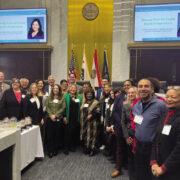(Part 2 – Basics)
ESTATE planning is simply how you want your assets distributed to your heirs after you die with as little time and expense as possible. This can be accomplished by setting a revocable trust.
A revocable living trust allows you to establish a simple trust to pass on your assets to your heirs. You, not the court, decide who gets what. You are the boss. You are the trustees of your own trust, so there is no need for costly attorneys or accountants and no administration costs. As trustees, you have all of the rights and powers to control your assets the same as you did individually, but now it can be passed to your heirs free of probate and may also save you thousands of dollars in estate taxes.
Each individual has a personal estate tax exemption in millions: $2 from 2006 to 2008, $3.5 in 2009, $5 in 2010 and 2011 (there was no federal estate tax for decedents who died in 2010 but tax basis of inherited property could result to more capital gains tax, subject to special rules), $5.12 in 2012, $5.25in 2013, $5.34 in 2014, $5.43 in 2015, and $5.45 in 2016. This means that for 2010 and later years, if an estate is less than $5 million there is no estate tax. However, if the estate exceeds the exclusion amount at the time of death, estate tax rates rise to a maximum of 35 percent for 2011 and 2012 and a permanent tax rate of 40 percent for years after 2012. If an individual estate is less than the exemption amount there is no federal estate tax due upon death. The exemption amount is reduced by the amount of taxable gifts prior to death. If there is greater chance that your estate might owe estate tax, you may want to give away property during your life. It is estimated that only 0.3 percent of Americans would worry to pay estate tax or 99.7 percent will not exceed the personal exemption amount of $5.45million or $10.9 million (plus if married, estate total value.
The ABC revocable living trust with A-survivor’s trust holds the surviving spouse’s half of the estate , with B -first-to-die spouse’s bypass trust share of the estate equal to the estate tax exemption amount and with C – marital trust equal to the amount necessary to reduce the estate tax on the first-to-die spouse’s death to zero.
Portability election of estate tax exemption provides for the transfer of the deceased spousal unused exclusion DSUE amount to the surviving spouse. The election is made on the timely filed estate tax return for the decedent with a surviving spouse. In some situation with the portability election, there is probably no need for the bypass trust.
Three different basic type of trusts for surviving spouse are a qualified terminable interest property trust (QTIP), a qualified domestic trust (QDOST), or a charitable remainder trust (CRT). These trusts could qualify for marital deduction. The QTIP is the most common marital deduction trust used for protecting children of a first marriage
Upon death of the surviving spouse, the estate would be taxed on the amount remaining in the survivor’s trust and the marital trust. If the first-to-die spouse left estate to the survivor, unused exemption of $5.34 million carries over to the estate of the surviving spouse. The assets from the estate will receive a full stepped-up in basis so heirs could potentially save up to 20 percent capital gains tax from sale of the estate assets.
For US citizens, the unlimited marital deduction is available, which allows a spouse to leave everything to their surviving spouse without paying estate taxes. However, the marital deduction is not available if the surviving spouse is not a US citizen even if spouse is a permanent US resident unless a special trust Qualified Domestic Trust (QDOT) is used. This trust can be included in the family revocable living trust, and does not have to be a separate trust document.
The use of a living trust to avoid probate and save estate taxes is the minimum that should be done by everyone. Individuals with estates over the threshold amounts should also consider further estate tax savings with the use of a Qualified Personal Residence Trust, an Irrevocable Children’s or Insurance Trust, and a Family Limited Partnership.
In accordance with IRS Circular 230, this communication is not to be considered a “covered opinion” or other written tax advice and should not be relied upon for IRS audit, tax dispute, or any other purpose.
* * *
Sy Al-os Accountancy Corporation provides accounting and tax services to individuals, corporations, LLCs and business entities. The Firm has a niche in defending taxpayers audited by the IRS and other governmental agencies.


